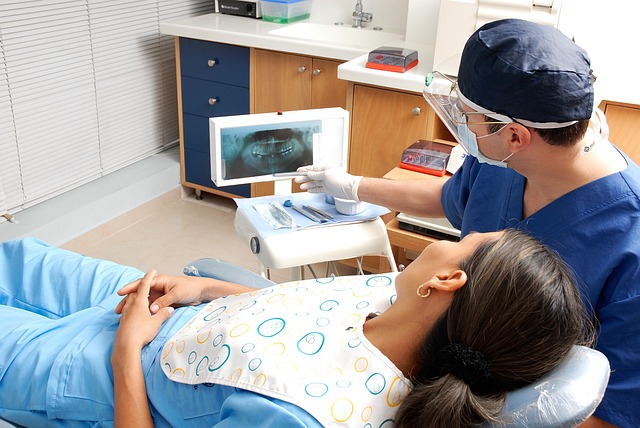Revolutionary Options for Advanced Dental Implant Solutions
Modern dental implant technology has transformed the landscape of tooth replacement, offering sophisticated solutions that address complex oral health challenges. These advanced systems provide enhanced stability, improved aesthetics, and long-term functionality for patients facing tooth loss. With innovative materials, precise surgical techniques, and computer-guided placement methods, today's implant procedures deliver remarkable outcomes that were previously unattainable.

The field of dental implantology has experienced remarkable technological advancement, fundamentally changing how practitioners approach tooth replacement. Modern implant systems incorporate cutting-edge materials science, digital planning software, and minimally invasive surgical protocols to deliver superior patient outcomes.
Advanced Dental Implant Solutions and Their Applications
Advanced dental implant solutions encompass a range of sophisticated techniques designed to address challenging clinical situations. These include immediate loading protocols that allow same-day tooth replacement, zygomatic implants for patients with severe bone loss, and All-on-4 treatment concepts that restore entire arches with minimal implants. Computer-guided surgery enables precise implant placement through detailed 3D treatment planning, reducing surgical time and improving accuracy. Additionally, surface modifications at the molecular level enhance osseointegration, the critical process where bone fuses with the implant surface.
Innovative Implant Technology Transforming Treatment Outcomes
Innovative implant technology leverages advanced materials and design principles to overcome traditional limitations. Titanium alloys with enhanced biocompatibility promote faster healing, while specialized surface treatments accelerate bone integration. Digital workflows incorporating intraoral scanning, cone beam computed tomography, and computer-aided design create seamless treatment experiences. Robotic-assisted surgery platforms provide unprecedented precision, while platelet-rich fibrin therapy enhances healing responses. These technological advances enable practitioners to treat previously inoperable cases and achieve more predictable results.
Dental Implants for Elderly Patients: Special Considerations
Dental implants for elderly patients require careful evaluation of systemic health conditions, bone quality, and healing capacity. Age-related factors such as osteoporosis, diabetes, and cardiovascular disease influence treatment planning and success rates. Modified surgical protocols, including shorter implants and alternative loading concepts, accommodate age-related anatomical changes. Comprehensive medical clearance and coordinated care with physicians ensure safe treatment delivery. Despite these considerations, research demonstrates that chronological age alone does not contraindicate implant therapy when proper protocols are followed.
Treatment Planning and Patient Assessment
Successful implant therapy begins with comprehensive patient assessment encompassing medical history, oral examination, and advanced imaging. Three-dimensional radiographic evaluation reveals bone volume, density, and anatomical structures critical for safe implant placement. Soft tissue analysis determines aesthetic requirements and surgical approach. Risk factor assessment identifies conditions requiring modification or additional precautions. Digital treatment planning software allows virtual implant placement, surgical guide fabrication, and patient education through visual treatment simulations.
Cost Analysis and Provider Comparison
Dental implant costs vary significantly based on complexity, technology utilized, and geographic location. Understanding pricing structures helps patients make informed decisions about their treatment options.
| Treatment Type | Provider Category | Cost Estimation |
|---|---|---|
| Single Implant | General Dentist | $3,000 - $5,000 |
| Single Implant | Oral Surgeon | $3,500 - $6,000 |
| Single Implant | Periodontist | $4,000 - $7,000 |
| All-on-4 Treatment | Specialty Practice | $20,000 - $35,000 |
| Zygomatic Implants | Advanced Specialty Center | $25,000 - $45,000 |
| Computer-Guided Surgery | Digital Dentistry Practice | Additional $500 - $2,000 |
Prices, rates, or cost estimates mentioned in this article are based on the latest available information but may change over time. Independent research is advised before making financial decisions.
Long-term Success and Maintenance
Long-term implant success depends on proper maintenance, regular professional care, and patient compliance with oral hygiene protocols. Implant-supported restorations require specialized cleaning techniques and professional monitoring to prevent peri-implantitis, an inflammatory condition affecting implant supporting tissues. Regular radiographic evaluation monitors bone levels and implant stability over time. Protective devices may be recommended for patients with bruxism or other parafunctional habits. With proper care, modern implants demonstrate success rates exceeding 95% over 10-year periods, making them a reliable long-term tooth replacement option.
Advanced dental implant solutions represent a convergence of materials science, digital technology, and surgical expertise that continues to expand treatment possibilities. These innovations enable practitioners to address complex cases while improving patient comfort, treatment predictability, and long-term outcomes. As technology continues to evolve, dental implants will likely become even more accessible and successful for diverse patient populations.




